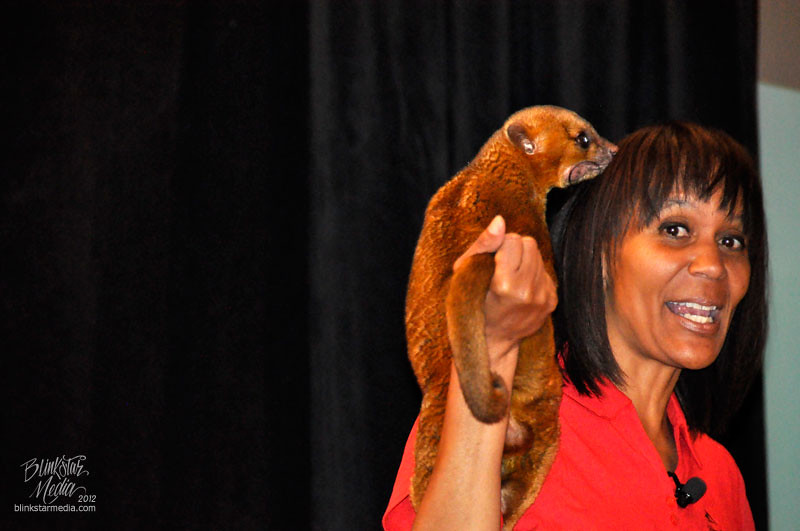 |
| "ASW12-061" by TrishaLyn is licensed under CC BY-ND 2.0 |
Just to further emphasize that some of the worst offenders
when it comes to the spreading anti-exotic pet rhetoric are exotic pet owners
themselves, I need to discuss the problem of those people who exhibit exotic
animals for ‘educational purposes’. I would guess that around 90% of the time these
people, many whom have purchased these exotic animals and own them in their
homes, will tell people some version of the following:
·
- These don’t make good pets
- They are not pets
- They are ambassadors for their species
Now, I’m all for discouraging people from obtaining pets
they are not prepared for. Unfortunately much of the general public sees tame
exotic animals and assume those species will behave like the standard golden retriever
or tame housecat. When people like this get exotic animals and it doesn’t work
out, this fuels the perception that no one should have them as pets. Many of
these former owners resent their negative experience and often join animal
rights radicals under the perception that if they failed, there’s no way anyone
else can be doing well with their exotics.
As imperative as it
is to never promote certain animals as pets, making the generalization that no
one can or should keep a certain species as a pets is undoubtedly harmful.
The first and most obvious
fact staring a rational person in the face is that you are keeping it as a pet, despite the words that are coming out
of your mouth. Your warning then has a similar effect to the words of a parent
telling their kid to not eat junk food while they gorge on a brownie sundae.
An even more clever
thinker might not buy this idea that only ‘qualified’ persons can own these
animals when it becomes apparent (in many cases) this animal exhibitor has
little credentials and has only applied for a relatively easily obtainable USDA
license.
Aside from that hypocrisy, animal ambassador exhibitors
cannot escape this truth: presenting a tame animal on a leash is not only
promoting that species as a pet, it is misrepresenting that species, which
inadvertently affects both the exotic pet trade and educational credibility.
For instance, presenting a tame raccoon or coati on a leash
teaches the general public that these animals are calm and ‘dog-like’. It does
not represent the other side of how they can be in captivity, and this includes
the level of danger they present when they have hormonal outbursts that can
result in severe injuries for the owner.
Some ‘educators’ teach these animals to interact with the
public, and the most daring of them will even allow people, including small
children, to hold these animals.
Essentially, the fate of exotic animal legality often rests
in the claws of an untrustworthy non-human.
These are the reasons why it is absurd and nutty for exotic
animal exhibitors to talk negatively about the pet trade, when in fact they
should be its biggest ally.
If you have a problem with the exotic pet trade, you cannot abide
by your values and continue to misrepresent animal behavior which will lead
people to perceive these animals as dog-like.
People who present animal ambassadors instead should just
stick to the facts, instead of moralizing. For instance, instead of saying “raccoons
are not pets”, say “raccoons will be destructive in the home and they can leave
you with a serious bite wound”.
You can never go wrong with the facts.
When you agree with the animal rights activists that an
animal makes a bad pet it is not good for you, the exotic pet owner. This can
result in future legislation blocking you
from getting more exotics.
Nice information, valuable and excellent design, as share good stuff with good ideas and concepts, lots of great information and inspiration, both of which I need, thanks to offer such a helpful information here. DO CATS AND DOGS HAVE CANNABINOID RECEPTORS?
ReplyDelete